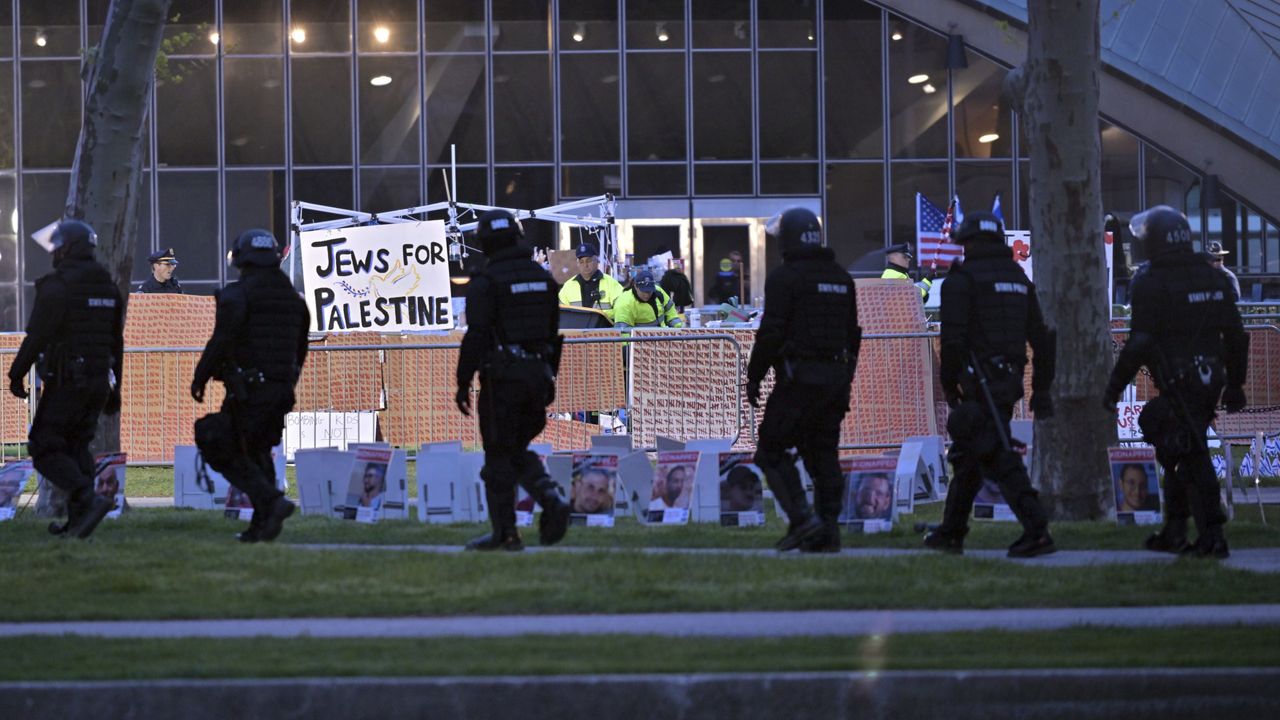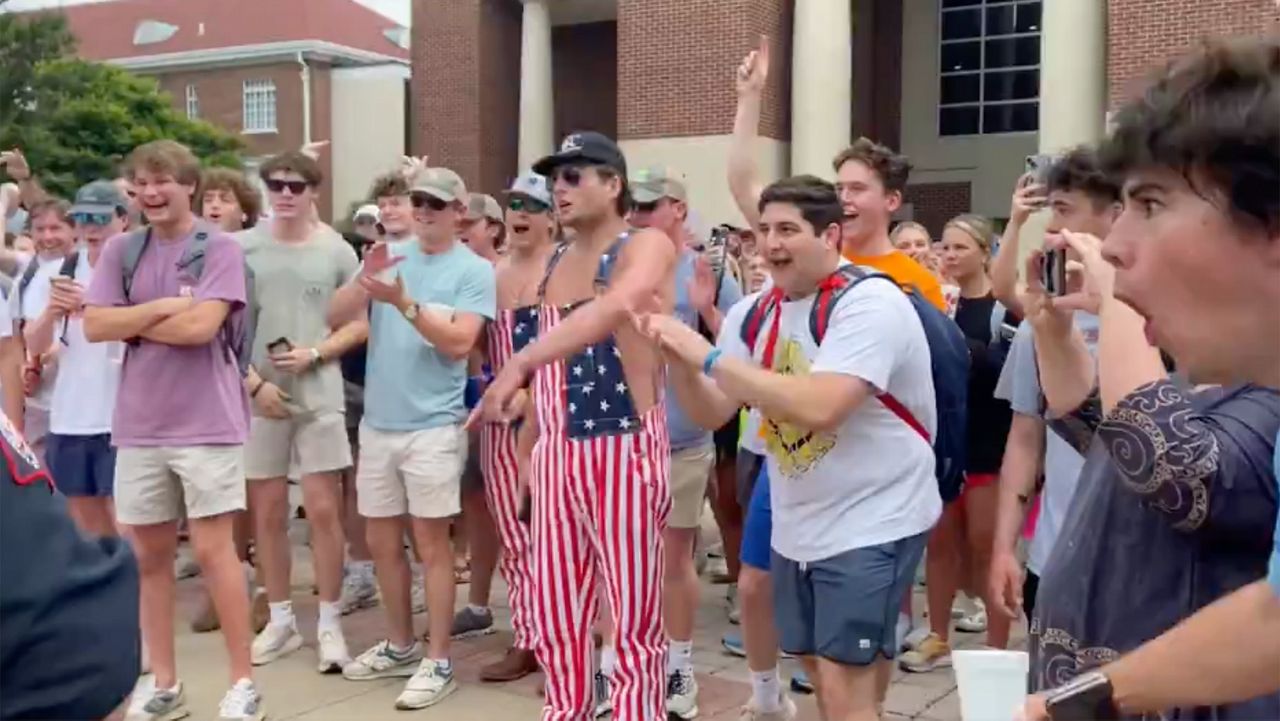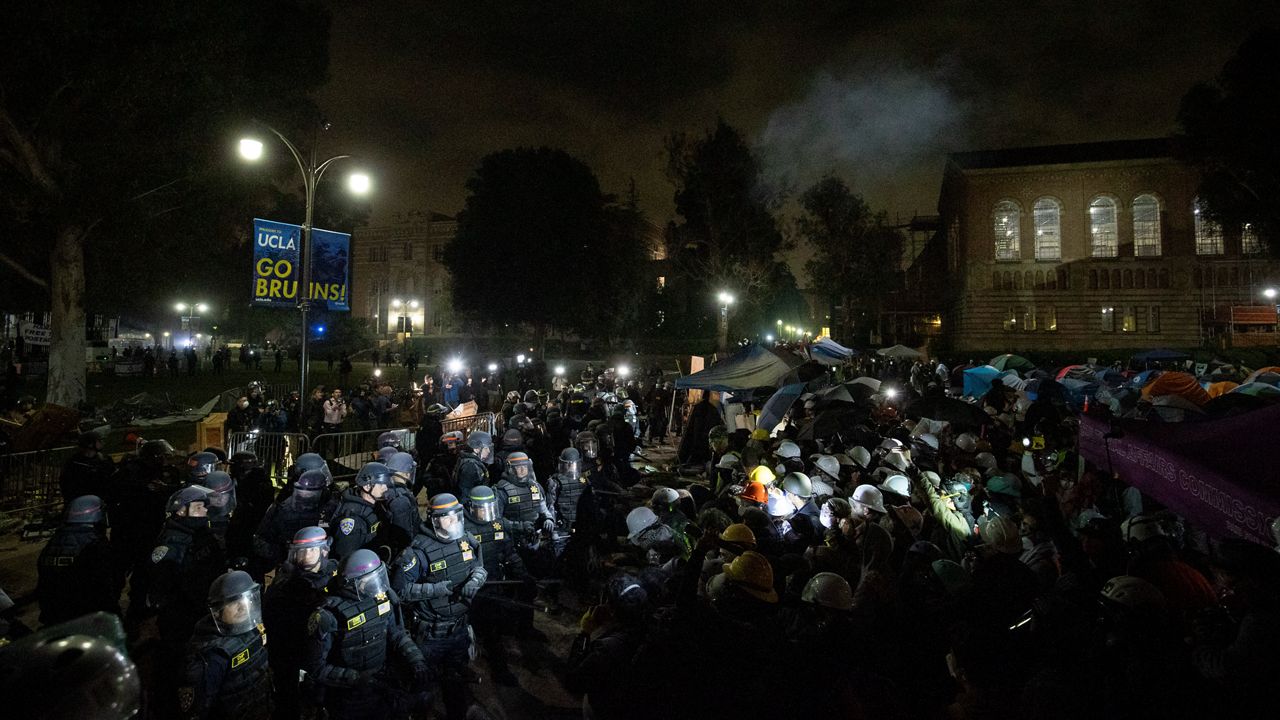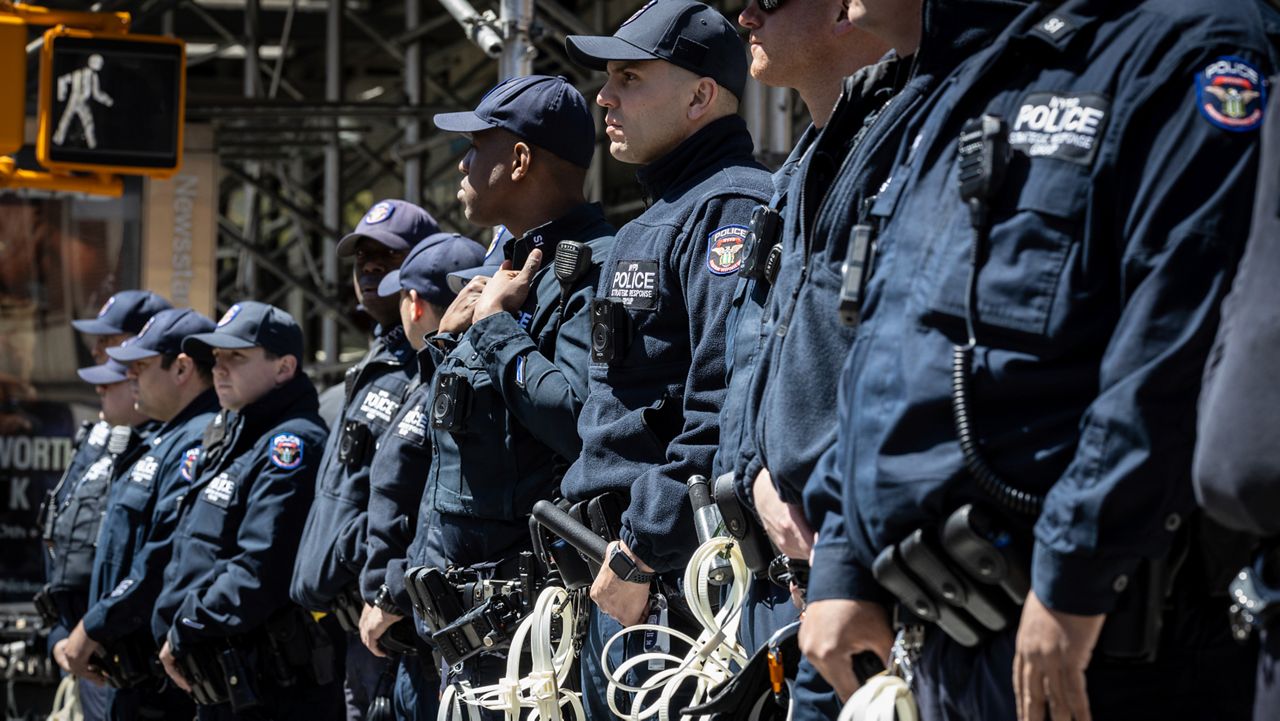Police using pepper spray cleared a pro-Palestinian tent encampment at George Washington University and arrested dozens of demonstrators on Wednesday just as city officials were set to appear before hostile lawmakers in Congress to account for their handling of the 2-week-old protest.
What You Need To Know
- The House oversight committee has canceled a hearing with the Washington, D.C., mayor over a university encampment shortly after 33 protesters were arrested
- Police have been clearing a pro-Palestinian tent encampment at George Washington University since dozens of protesters left the site and marched to President Ellen Granberg's home
- The District of Columbia's Metropolitan Police Department says arrests were made for assault on a police officer and unlawful entry
- Mayor Muriel Bowser and MPD Chief Pamela Smith were preparing to testify about the District of Columbia's handling of the protest at a House Committee on Oversight and Accountability hearing on Wednesday afternoon before it was canceled
The House Committee on Oversight and Accountability canceled the hearing after the crackdown, with its chairman and other Republicans welcoming the police action. House Speaker Mike Johnson said “it should not require threatening to haul D.C.’s mayor before Congress to keep Jewish students at George Washington University safe.”
District of Columbia Mayor Muriel Bowser, a Democrat, said she and Metropolitan Police Chief Pamela Smith decided to clear the camp based on shifting information about increased threats. Smith said there were signs “the protest was becoming more volatile and less stable.” Among them were indications that protesters had “gathered improvised weapons” and were “casing” university buildings with the possible intention of occupying them, police said.
Tensions have ratcheted up in standoffs with protesters of the Israel-Hamas war on campuses across the United States and increasingly in Europe. Some colleges cracked down immediately. Others have tolerated the demonstrations. Some have begun to lose patience and call in police over concerns about disruptions to campus life and safety.
Police also moved in Tuesday night to break up an encampment at the University of Massachusetts. Video from the scene in Amherst showed an hourslong operation as dozens of police officers in riot gear systematically tore down tents and took protesters into custody. The operation continued into early Wednesday. Police said about 130 people had been arrested after protesters refused orders to disperse.
D.C. police said officers moved to disperse demonstrators at George Washington because “there has been a gradual escalation in the volatility of the protest.” They said 33 arrests were made, including for assault on a police officer and unlawful entry. They confirmed they used pepper spray outside the encampment against protesters who were trying to break police lines and enter.
George Washington had warned of possible suspensions for continuing the camp on University Yard. Protesters carrying signs reading “Free Palestine” and “Hands off Rafah" also marched to school President Ellen Granberg’s home Tuesday night.
The school said in a statement that while it is committed to free expression, "the encampment had evolved into an unlawful activity, with participants in direct violation of multiple university policies and city regulations."
Throughout the roughly two weeks of the encampment, the scene had been largely tranquil.
The tightly organized demonstrators and pro-Israeli counter-protesters who stood along the edges interacted without serious conflict. Some of the most charged confrontations involved people objecting to the treatment of a George Washington statue, wrapped with Palestinian scarves and flags with “Genocidal Warmonger University” spraypainted on its base.
Since April 18, about 2,800 people have been arrested on 50 campuses, figures based on Associated Press reporting and statements from universities and law enforcement agencies after this latest anti-war movement was launched by a protest at Columbia University in New York.
At other U.S. schools:
- A pro-Palestinian tent encampment was cleared by officers in riot gear at the University of Chicago on Tuesday after administrators who had initially adopted a permissive approach said the protesters had crossed a line. Hundreds of protesters had gathered for at least eight days until administrators warned them Friday to leave or face removal.
- The president of Wesleyan University, a liberal arts school in Connecticut, commended the on-campus demonstration, which includes a pro-Palestinian tent encampment, as an act of political expression. The camp there has grown from about 20 tents a week ago to more than 100. “The protesters’ cause is important — bringing attention to the killing of innocent people,” university President Michael Roth wrote to the campus community. “And we continue to make space for them to do so, as long as that space is not disruptive to campus operations.”
- The Rhode Island School of Design’s president, Crystal Williams, spent more than five hours with protesters discussing their demands after students started occupying a building Monday. On Tuesday, the school announced it was relocating classes from the building.
- New York City police arrested 50 people outside the Fashion Institute of Technology on Tuesday evening after protesters who had been rallying nearby arrived to support a student encampment.
In Amherst, school Chancellor Javier Reyes said he ordered the sweep after discussions over a wide range of demands failed to yield an agreement to dismantle the encampment and engage in “constructive discussions.”
A week ago, the George Washington encampment was host to a somewhat chaotic visit from several Republican members of the House oversight panel who criticized the protests and condemned Bowser’s refusal at that point to send in police.
Bowser on Monday confirmed the city and police department declined the university’s request to intervene. “We did not have any violence to interrupt on the GW campus,” she said then.
But in the early hours Wednesday, hundreds of Metropolitan Police Department officers descended on the scene, reported The GW Hatchet, the university's student newspaper.
At least two officers deployed pepper spray on protesters, who then set up an impromptu medical area at a market near the campus, the paper said. Organizers ran to a convenience store to buy water to rinse their eyes.
The oversight hearing, now scrapped, was another pressure point in the fraught relationship between Republicans in Congress and officials in the heavily Democratic district. Trump, Republicans' presumptive presidential nominee, has threatened a federal "takeover” of the city, to control crime, if he wins back the White House.
The district is already a federal enclave, though with a measure of self-government and its own police department, which the federal government can already exert control over in some emergencies.









